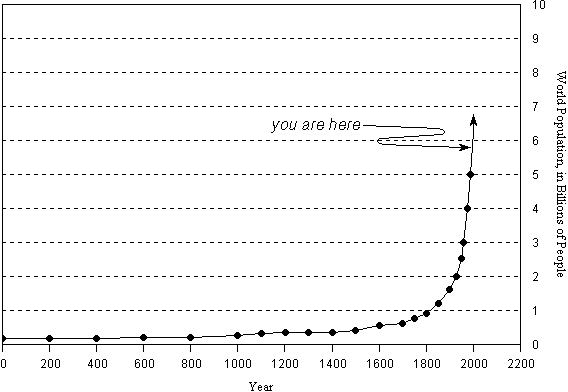Why Has The Greatest Generation Given Up?
 If there's one thing America agrees on, it's that the World War II generation was uniquely terrific. Not only did they grow up in the Great Depression, win World War II, save America from Nazism then Communism, they also built the economic infrastructure that made globalization possible, and America the economic powerhouse of that global economy.
If there's one thing America agrees on, it's that the World War II generation was uniquely terrific. Not only did they grow up in the Great Depression, win World War II, save America from Nazism then Communism, they also built the economic infrastructure that made globalization possible, and America the economic powerhouse of that global economy.My Uncle Bill is a particularly great member of the Great Generation, so I wonder: Why has he given up on the future of the systems that he helped make great?
Bill came back from World War II, changed his German last name, left the midwest for New York City and joined business and industry. He was good at it, so he started writing business management books. He's in his upper 80s now, working to complete the five-book contract he signed when he was in his mid-80s.
A year ago, I took a walk with him in Hawaii. Thin and fit, he seemed to be a big fan of life. Sadly, I just received his regular early-year mailing to his clients and family and it is astonishingly gloomy.
What he devoted his life to -- what he calls Plan A, how we've been doing things all along -- is no longer his cup of tea. Overcome with worry about the world, he's switched teams and now roots for Plan B, which is basically slamming on the brakes, then dialing robust progress back.
 For a large part, this sea change was brought about by his fear about population increase. He wrote:
For a large part, this sea change was brought about by his fear about population increase. He wrote:Edward O. Wilson, Harvard Professor and Pulitzer prize-winning author, in his book Consiliance, states that to raise the standard of living of the world's present 6 billion people to the U.S. level with existing technology would require two more planet earths.Why is an intelligent man who grew up with Model T's and cabinet-sized radios, then saw technology fly forward now accepting the "with existing technology" qualifier? He seems to be suffering from gloom-blindness, a disease whose sympoms I've found in many of his generation, from my mom to (although he's younger) John Murtha.
Brace yourself; here comes this once optimistic man's view of what the world's coming to:
Plan A economies create consequences: Global warming,drought, floods, destructive storms ... falling water tables ... loss of arable land. Erosion, desertification, depletion .... Growing pollution of air, land, lakes and rivers, oceans worldwide.C-SM readers know I'm usually quick to take apart assumptions like those, but because I dearly love my Uncle Bill, let me just take on one: In the best of the Plan A economies (that would be us), pollution of air, land etc., has dropped dramatically since the early 1970s because of the Clean Water Act and Clean Air Act -- despite our growing population and production.
Extinction of species. ... Social ills. Poverty, hunger, illiteracy, crime, unemployment, intolerance, congestion, civil disruption, civil wars, threats of pandemics, nuclear proliferation, terrorism, worldwide.
He sees as the cause of all this destruction the very economy he dedicated his life to building:
Plan A's "More" created this crisis.
 Plan A also has eliminated hunger from most of the world, conquered the diseases that used to be the greatest killers of humanity (things like tooth decay, which used to kill millions, or the pandemics that did much more than merely threaten, like influenza and the plague), replaced high-polluting coal and firewood with clean-burning gas and nuclear power sources -- and increased education levels, opportunity, longevity and joy.
Plan A also has eliminated hunger from most of the world, conquered the diseases that used to be the greatest killers of humanity (things like tooth decay, which used to kill millions, or the pandemics that did much more than merely threaten, like influenza and the plague), replaced high-polluting coal and firewood with clean-burning gas and nuclear power sources -- and increased education levels, opportunity, longevity and joy.Plan A did not cause the population surge that he worries so much about. In many of the most "Plan A" of countries -- Japan, Europe, even China -- the population is dropping. The population surge comes from Africa, South and Southeast Asia, Latin America -- places that would die to have a bit more Plan A. If we could just Plan A-itize them, their populations would drop.
His solution, Plan B, requires that we do no harm and remediate what has been harmed.
Remediating what has been harmed is a fine idea, but "do no harm" is to give up on humanity's intelligence, flexibility and ability to adapt -- skills Uncle Bill and his Great Generation routinely used to survive the Depression, win the war, transform the economy and whup the Ruskies.
Producing rockets does harm, so there will be no more space exploration. Building solar panels and wind farms requires steel, oil, plastics, so there will be no alternative energy. Building houses for new families requires that forests be cut, oil be drilled and refined, steel be forged, and a host of chemicals be compounded, so the families will have to find another way to live.
Uncle Bill's acceptance of Plan B has two causes, I believe. First, he no longer has faith in mankind and does not trust it to steward the earth's resources. Second, and more troubling, he has accepted man as morally and functionally equivalent to the rest of creation, not in any way superior to it.
Hope comes from accepting man as superior, as the God-created steward of this planet. Yes, man has made mistakes, but he has learned from them. So do you trust mankind or not?
Because his gloom has overwhelmed his trust, Uncle Bill doesn't appear to trust man anymore. So he would deprive us of the opportunity to use these deeply ingrained American skills of intelligence, flexibility and ability to continue the progressive improvement of life on Planet Earth (whether that means conquering despots or conquering pollution) because for some reason he and so many of his generation have lost the optimism that made the so great.
Labels: America, Environmentalism, Global warming, Greatest Generation




<< Home